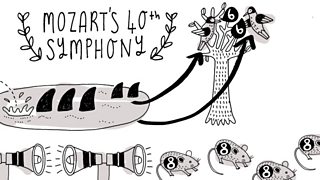A memory master's guide to remembering everyday things

Meet Ed Cooke, Grandmaster of Memory.
He can learn a 1,000-digit number in under an hour and the order of a pack of cards in just two minutes – but he also describes himself as a "forgetful person".
So how does a memory grandmaster remember everyday things, like...
A long shopping list?
"A narrative is a good way of remembering shopping. I'd try making a silly story about all the things on my list. Or maybe just arrange them around the kitchen in my head – carrots on the cooker, sugar in a pot on the cooker, on the counter to the side a pile of lemons... By visualising them like that, you can quite quickly store them in the mind."
The names of new acquaintances?
"A good way to do this is to make associations with people who share that name, usually someone you know. So with the name John Smith, you might think of a colleague called John and someone else you know with the surname Smith. Then imagine the new person hanging out with those guys."
Telephone numbers?
"Dividing a long phone number into three sets makes it much more domesticated for the brain than a long number. Repetition helps when it comes to remembering each set, as does seeking patterns in the numbers. You might think about how the shapes they would make on a phone keypad, or how the numbers relate to each other mathematically."
Pin numbers?
"I always like to think of pin numbers as romantic couples, with each half of the pin being the respective age of each person. So if your pin was 1692, then it would be a little bit disgraceful."
Words and phrases of a new language?
"Learning a language combines many memory techiques: repetition, testing, breaking sounds into a chain and saying them one by one. But you can also use imaginative images to capture the sounds. For example, if you're trying to remember the French word for poster, 'affiche', you might think of a fish on a poster."

A long piece of music?
"I’d start by breaking the tune into chunks, then deal with each chunk separately. First, I’d make an association between the first chunk of music and an image. Once I could think of the image and get the chunk, I’d do the same with the next bit of music and so on, until I could pull all the chunks into a sequence."
Birthdays and anniversaries?
"The most elaborate way of remembering dates is to create an image for every month, and images for all the dates within that month too. Or you could do something more simple. If someone was born on 1 March, I’d imagine that person coming first in a marching race."
The location of your keys?
"I often forget my keys. My advice is to try and store them in a consistent pocket."

On 13 October Ed Cooke will join forces with Aurora Orchestra, an ensemble famous for truly brain-boggling feats of musical memorisation. The aim? To give listeners a taste of what it’s like to memorise an entire symphony.
Ed and the musicians will be using tried-and-tested memory techniques to help the audience in the concert hall – and people listening at home – learn the opening of Mozart’s Symphony No 40, all in the space of a few minutes. Join them in the Musical Memory Palace.
-
![]()
The Musical Memory Palace
Learn Mozart in minutes with Ed Cooke and Aurora Orchestra, conducted by Nicholas Collon,
-
![]()
Why Music? The Key to Memory
Browse programmes, clips and features from a fascinating weekend of broadcasts from Wellcome Collection.
-
![]()
How to remember complicated things in a simple way
Five tried-and-tested memory techniques that will help you learn pretty much anything.
-
![]()
Why the music we love as teens stays with us for life
Neuropsychologist Dr Catherine Loveday explains why memories of music from our teenage years remain the strongest.




